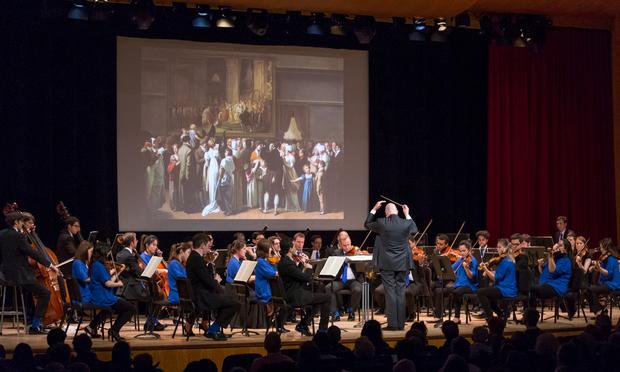Musical America
By Susan Elliot
July 13, 2016
Austria’s Grafenegg Festival, now approaching its tenth year as a destination summer event, with preliminary events beginning July 16, has appointed Leon Botstein as artistic director of the Grafenegg Campus and Academy, effective in 2018. The position is a new one, not to be confused with artistic director of the festival itself; that is Rudolf Buchbinder, in the job since the event’s beginnings in 2007.
Apart from attracting some of the highest profile talent in the business [see below], a large part of the Grafenegg Festival’s appeal is its setting, on the nearly 70 acres and gardens surrounding Grafenegg Castle, about an hour’s drive from Vienna. Its primary venues include a vast open-air stage and a 1,300-seat auditorium, along with a number of smaller spaces, including rehearsal studios.
Known for his penchant for clever and unusual programs, both as music director of the American Symphony Orchestra and as artistic director of the summer festivals of Bard College, of which he is president, Botstein recently launched a new training orchestra called The Orchestra Now (TŌN), which will undoubtedly play a part in his new job at Grafenegg.
In a brief phone interview, he described his primary function there as creating innovative, thematic programs and events for rising artists, including members of TŌN, as well as European Union Youth Orchestra members and graduates, and integrating those programs with the larger festival. He also plans to explore the intersection of music with other disciplines and with the culture at large. His first summer will focus on the immediate post-war years and the new nationalism, including the emergence of Russian as well as American composers during that time frame.
As both cause and effect of his efforts, Grafenegg will expand in size and duration.
“The development of musical talent is dear to my heart,” said Buchbinder in a statement. “It makes me proud that we have not only become a significant venue for orchestras and artists of substantial acclaim, but that we also provide a home base for the next generation of musicians in the heart of Europe….We can test new visions…with an interdisciplinary approach.”
Botstein referred to making Grafenegg “a center of innovation in the character, significance, and content of concert life,” while the organization’s Executive Director Paul Gessl called it “a musical home to local, national and international young artists.”
The Festival’s 2016 season includes performances by the Vienna Philharmonic, the Royal Concertgebouw Orchestra under Daniele Gatti, the Cleveland Orchestra conducted and Franz Welser-Möst, violinist Hilary Hahn, and Composer in Residence Christian Jost and the Tonkunstler Orchestra.
Original story here.
